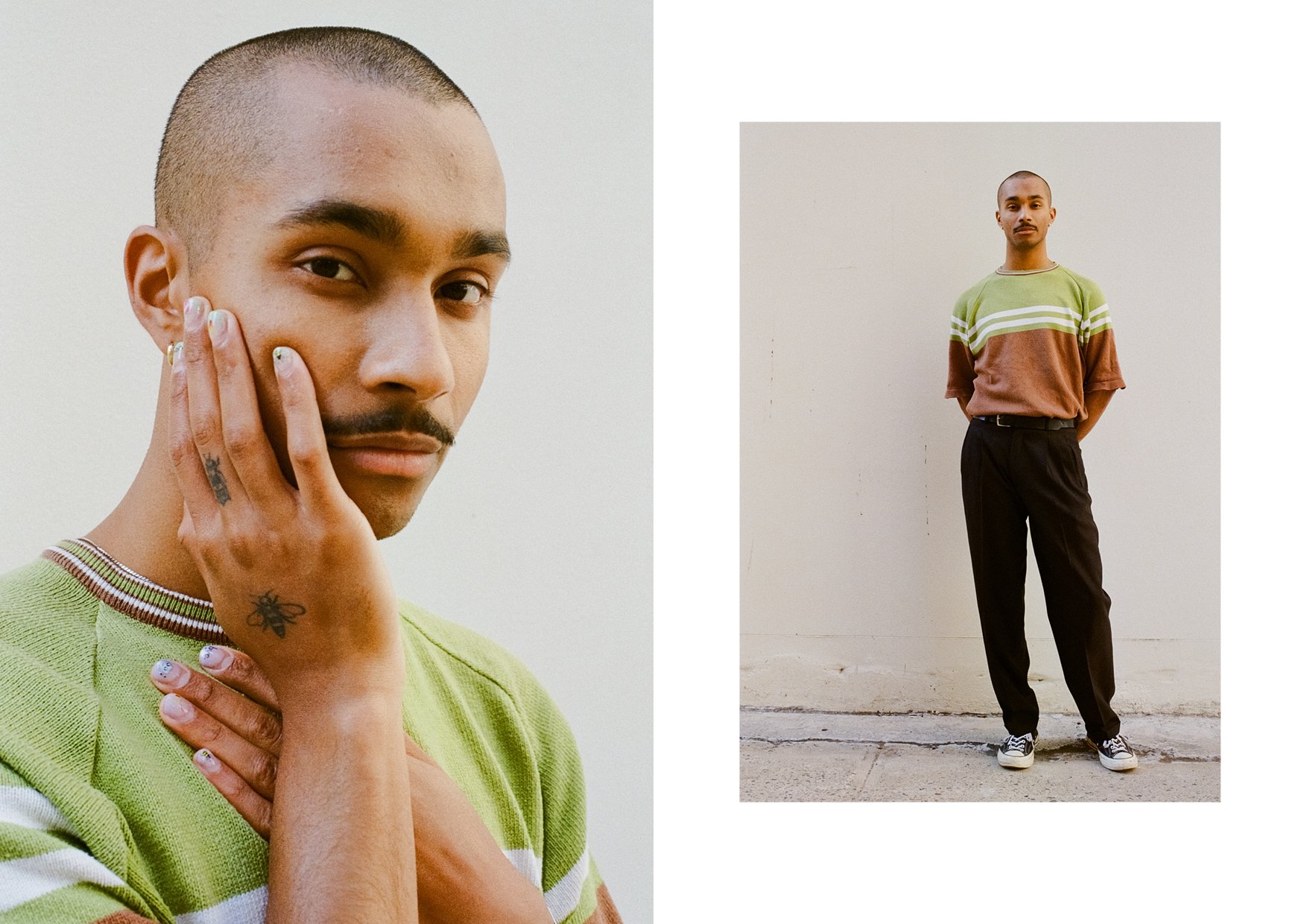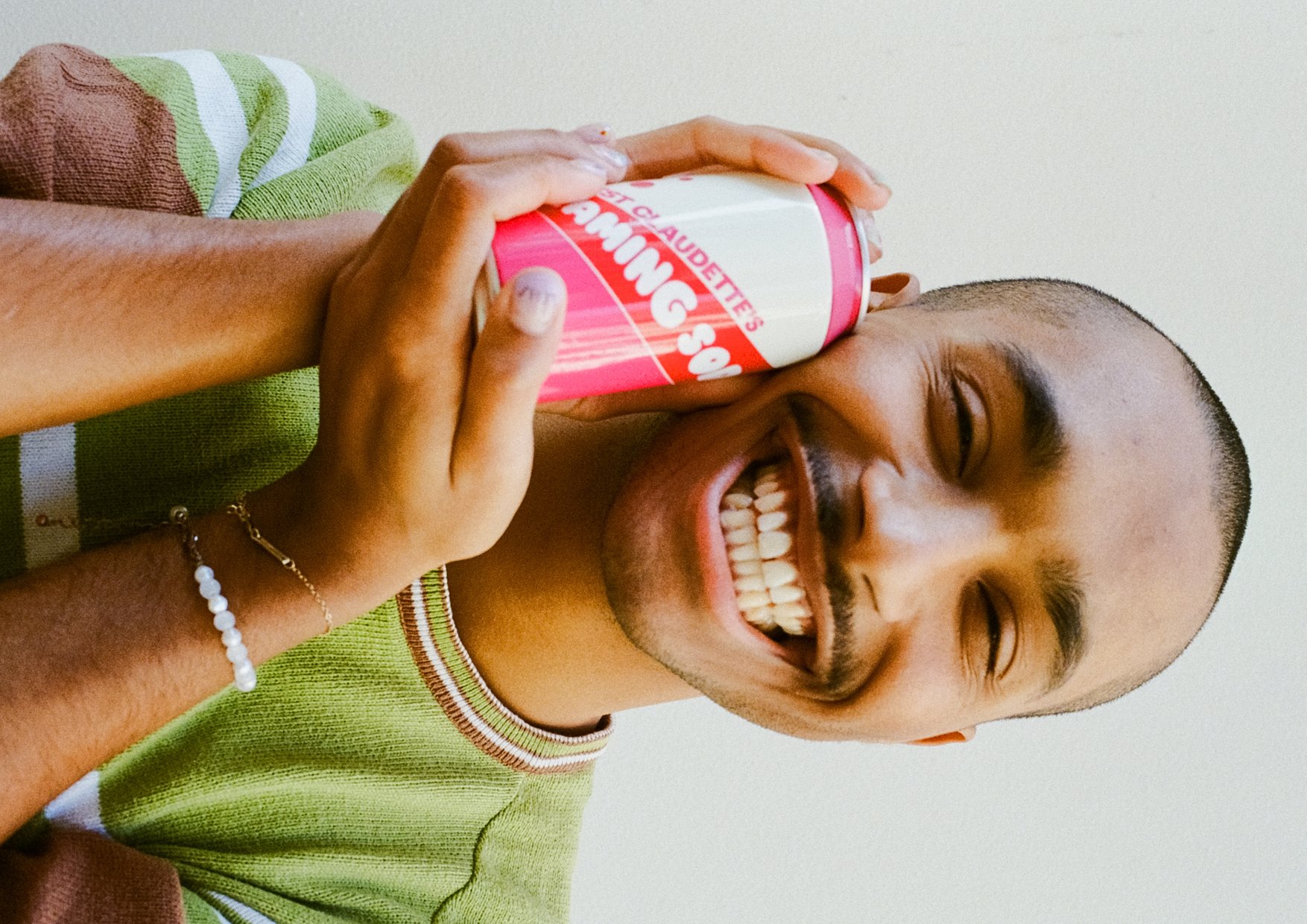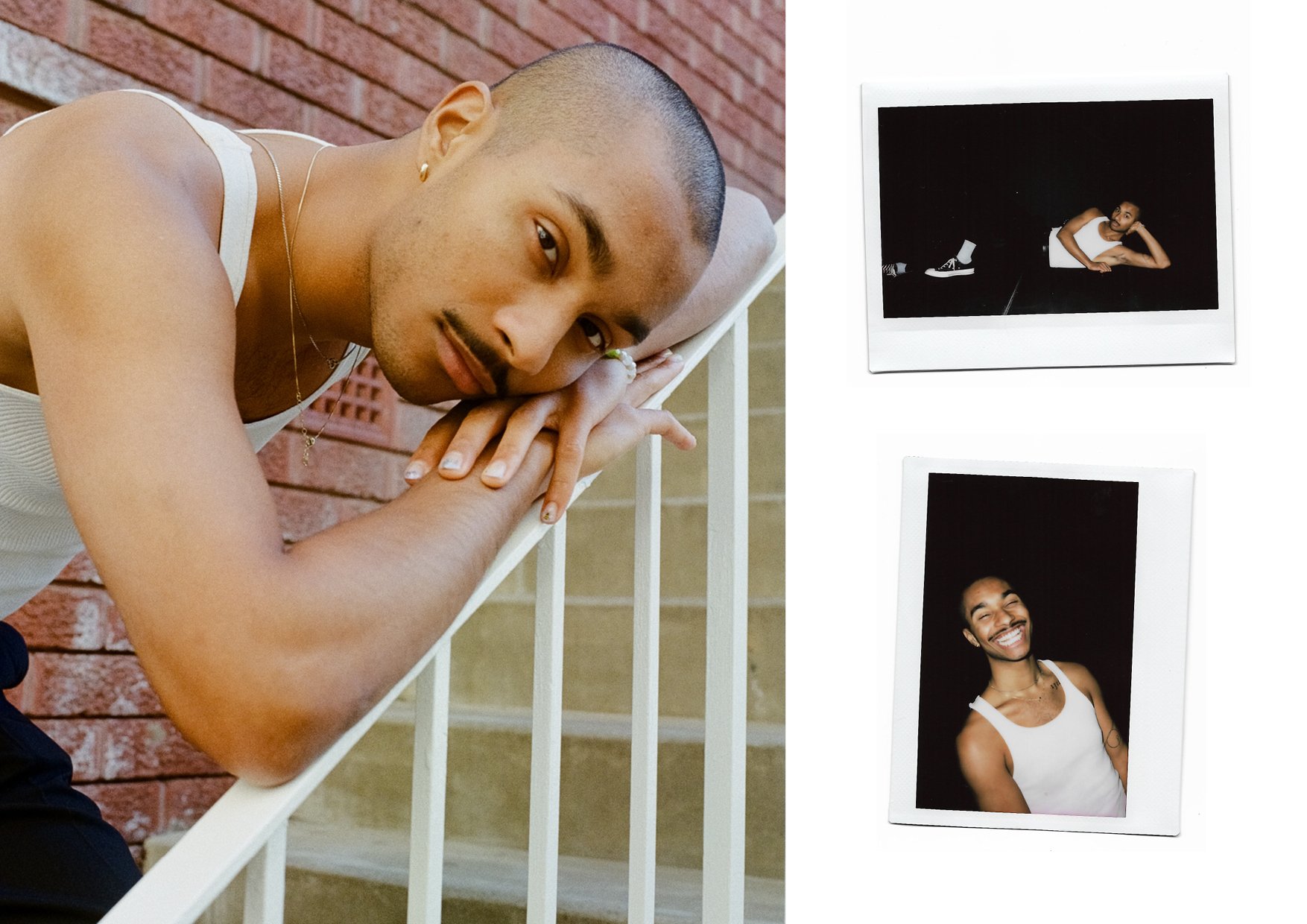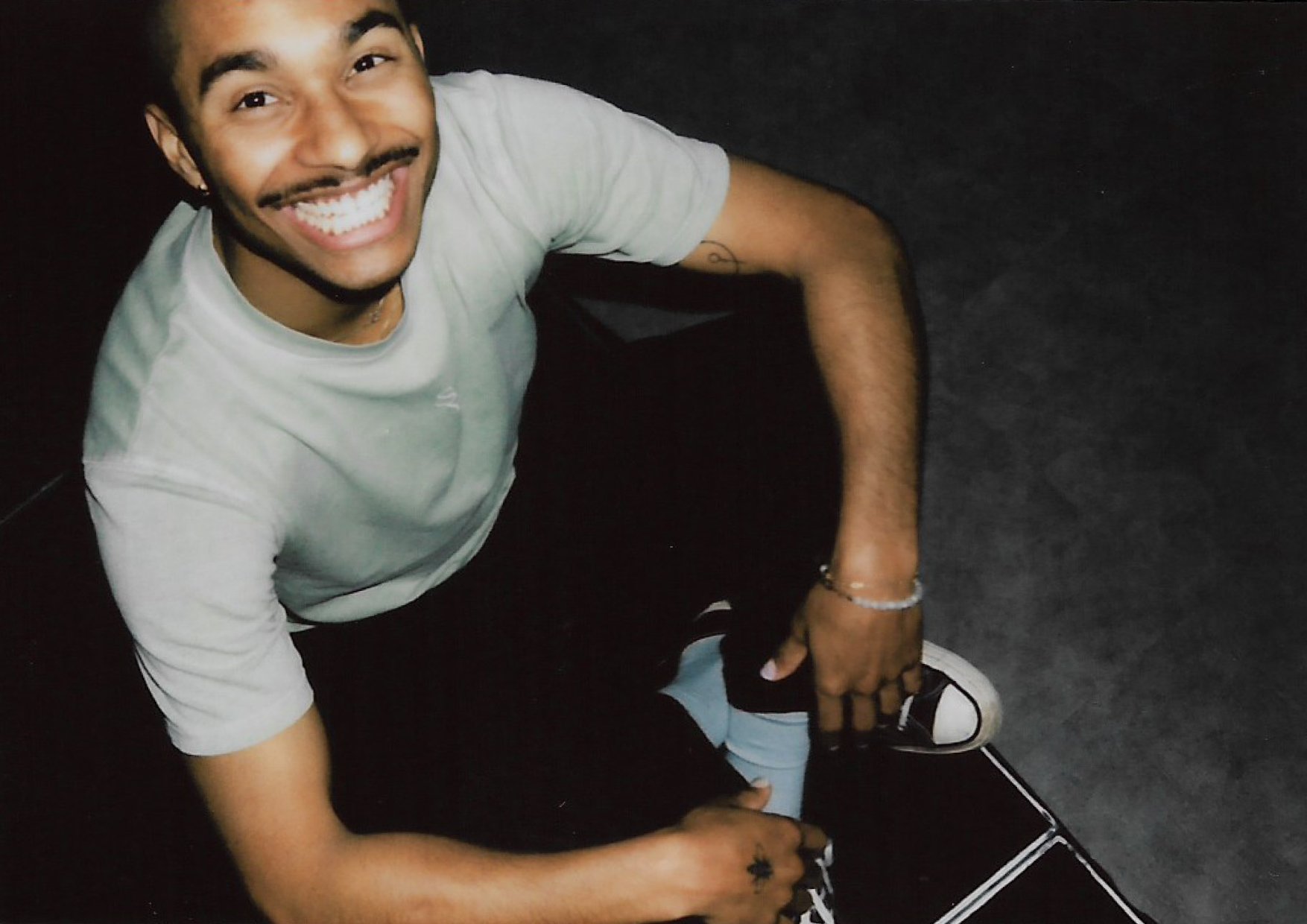FOREST CLAUDETTE
Forest Claudette has been holding onto the EP ‘The Year Of February’ for a long time. At first it might seem like a debut simply about a period of emotional growth, but the depth of sound, the intricacies of layering, and nods to the great history of Hip Hop and R&B sound production are all attributes of Claudette’s immersion in his craft. Post EP release and finally able to do live shows Forest is maintaining his momentum. Speaking with grace, energy and charm he took us from where he was to where he’s going now.
I interviewed someone recently who said they had got to the stage where they would just pay someone to leak all of their songs because waiting for a whole EP release was like extreme edging. ‘The Year Of February’ is finally out, but you wrote one of the first singles ‘Creaming Soda’ five years ago. How has the whole process been for you?
Hahaha. I’ve never heard that comparison before but I think there’s definitely some truth to it. For me, because it’s been so spread out, the process has changed and in a way it’s been everything. I’ve had moments of pure elation and great spikes of excitement. There’s also been disappointment and doubt and frustration, but through everything I’ve had an incredible team and support network around me. I have all those people and more to thank for keeping me engaged, focused, and for believing in the project. While I don’t think I’ll have to endure another waiting period like that, I'm grateful for the time I had and can recognise it helped me develop as an artist.
Your parents are classically trained musicians. How did you go from listening to and learning quite structured styles to being able to blur the lines of different genres for your own music?
I think if you asked my parents, they’d say even when I was a kid learning violin and classical music I always had the urge to create my own little songs and make music in contemporary spaces. Being exposed to so many different kinds of music growing up has played a huge role in that as well. I listen to everything from Classical, Rock, Indie Pop, Hip Hop, Rap, R&B, Soul, Electronic music - I've had chances to fall in love with all of them. So as far as where blending and genre fusing comes in, I think it has everything to do with that exposure while having basic music theory as a foundation.
You’ve been described as having a unique or new take on Hip Hop and R&B, how do you take inspiration from the artists you admire who do the same, and then mould your own music?
I feel so fortunate to be entering music at this time. People like Frank Ocean, Solange, Steve Lacy, Mereba, and so many others have helped me to feel comfortable exploring different genres. Growing up listening to all kinds of music, my ear takes me different places sonically and so it’s really just about trusting that.
We’ve just seen SZA on the cover of The TIME100 Next with an interview by Lizzo, who are the female identifying and non-binary artists you admire or look up to?
So first of all there’s Little Simz. I’ve been a fan since like 2015 and to be able to watch her growth as an artist has been so inspiring and I just know she works so goddamn hard because everything she does seems effortless. Brittany Howard has been someone I look up to with regards to her voice as well as her song writing and composition. From ‘Alabama Shakes’ to ‘Bermuda Triangle’ to her solo work, the quality of music never stops being exceptional and I believe it’s because of her. Oh my goodness and Noname.
The political nature of her lyricism, but also her lyricism in general and the details she uses to create a story. Ok I could probably write a short book about all of them so rapid fire round. Solange, Tierra Whack, Mereba, Sampa the Great, Sza, Ricki Monique, Lava La Rue (she/they), Lianne La Havas. There are so many incredible female identifying and non-binary artists that inspire me but these in particular.
“even when I was a kid learning violin and classical music I always had the urge to create my own little songs and make music in contemporary spaces. Being exposed to so many different kinds of music growing up has played a huge role in that as well. I listen to everything from Classical, Rock, Indie Pop, Hip Hop, Rap, R&B, Soul, Electronic music - I've had chances to fall in love with all of them.”
Your songs are very catchy, but also what I love is that none are the same. What goes into creating a hook for you?
Thank you! I would describe myself as a pretty intuitive writer. A lot of the hooks I come up with come from improvisation. It’s just something I grew up doing a lot especially in high school, so that’s where I'm comfortable. For me writing melodies looks like playing off of a lyric idea that's popped in my head and making music around it until I get excited enough to start singing something. Then myself and whoever I’m working with use that as a guide, like puzzle pieces, and start picking it apart to see what we can make out if it.
Tracks like ‘Hologram’ are about being in a vulnerable place in terms of self- doubt. Yet you come across as a very warm and confident person. Is the doubt still there, or are your songs more like parcels of time that have already happened?
I would say most of the songs function like that, moments in time that I can look back on and smile thinking of my younger self. I like to think I’ve grown from all of those experiences and the emotions they brought to the surface. Having said that, the themes in ‘Hologram’ specifically are ones that I still wrestle with at times. I’m still searching for a balance between being proud of what I have already accomplished and enjoying the process as it unfolds.
A lot of this EP is about your music journey so far, and it’s not all positive, is this EP a cautionary tale?
Nah, at least it doesn’t feel that way to me. It's more a vehicle to reflect. I think of it more like commenting on the different states of mind I’ve gone through over the years. I like to think I've grown from those situations and experiences. But I wouldn't say it's necessarily a cautionary tale. I've had an interesting journey into music and being an artist. So I think it's just trying to speak to that.
You were on the Live Nations ‘Ones To Watch’ showcase night at BIGSOUND this year. How do you feel about that status? Are you ready for it?
First and foremost a huge thank you to Bigsound for having me and my band, and of course to Live Nation for putting me on like that. It was such a wonderful opportunity, so thank you to everyone over there who organised it. One of the things I’ve had more than anything else over this period is time. I spent a lot of that time fantasising and ruminating on the kind of future that I'm trying to have inside and outside of music. I believe I’m as ready as I can be for career in an industry that is consistently unpredictable. I really can’t wait.
A review described your live show as engaging, interactive, and that you looked like you were having so much fun on stage. Is this what we can look forward to?
Absolutely. Finally, being able to perform live has been one of the greatest pleasures of releasing music. Being able to see people connect with what I've made and feeling the emotions in the room flux has been super special. So I do have a lot of fun, even though some of my tracks are kind of sad. I think people can expect a good time and if they’re feeling it maybe even cry a little. I'm excited for that part of my artistry to grow and develop as we do more shows.
How do you bring the fun to the live show? Is it legitimate internal excitement or a lot more rehearsal and groundwork?
The best way for me to have fun at the show is to be well rehearsed. I need to feel comfortable with what I'm doing, having some idea of how I want to move, the set list and making sure the band is tight and the chemistry is high. All that allows me to be free up on stage to improvise and interact with the crowd.
A few ways I read to describe you have been “infectiously warm”, “enigmatic and charismatic” and “very funny”. You were very comfortable in front of the camera when we did our shoot, and our photographer said you were a delight to work with. Where do you get that ease?
Those are some very flattering quotes you’ve pulled so thank you to those people. As far as being comfortable in front of the camera or just around people in general, I think that has everything to do with learning to be myself more often, and that takes practice.
Coming out high school, knowing I would be working with producers, I started a sound production course at the University of RMIT back home. I wasn’t planning on becoming a producer, but I wanted to be able to communicate more effectively with producers and understand what their roll could be in a session. A couple of years ago I was approached to do some modelling and I thought of it in a similar vain to production. A great chance to practice being in front of the camera, so now I can be a bit more comfortable.
See more from Forrest Claudette here / Words by Alex Officer / Images by Simone Taylor












